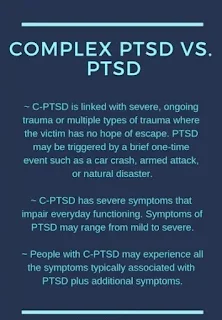Exploring the enabling factors that perpetuate victims' behaviors in abusive relationships is a critical aspect of understanding why these dynamics can persist over time. While the abuser is solely responsible for the harm they inflict, it’s important to acknowledge that certain external factors and circumstances can contribute to a victim remaining in, or being unable to escape from, an abusive situation. These factors often create an environment where abuse is either normalized, overlooked, or difficult to escape from, thus allowing the destructive patterns to continue.
One significant enabling factor is the role of societal and cultural norms. In many cultures, there is an emphasis on preserving family unity or staying in a marriage, often at the expense of individual well-being. These cultural expectations can create immense pressure on victims to remain in abusive relationships, particularly if they are led to believe that leaving would bring shame or dishonor to their family. In some cases, religious beliefs may also play a role, with certain interpretations advocating for endurance of suffering within a marriage as a virtue. These societal pressures can prevent victims from seeking help or leaving, as they may fear judgment or ostracism from their community.
Another powerful enabling factor is the lack of awareness and education about what constitutes abuse. Many people still equate abuse solely with physical violence, overlooking the more subtle but equally damaging forms of emotional, psychological, and financial abuse. Victims may not even realize they are being abused, especially if they have been subjected to manipulation, gaslighting, or other tactics that distort their perception of reality. Without a clear understanding of what abuse looks like, victims may normalize the behavior or believe that what they are experiencing is just a “difficult relationship,” rather than recognizing it as harmful and unacceptable.
Economic dependence is another critical factor that can perpetuate a victim’s behavior in an abusive relationship. If a victim relies on the abuser for financial support, housing, or access to essential resources, the fear of losing these necessities can keep them trapped. This is particularly true for victims who have limited employment opportunities, lack education, or have been deliberately isolated from financial resources by the abuser. Economic control is a common tactic used by abusers to maintain power over their victims, making it incredibly difficult for them to leave. The victim may feel that they have no viable options for survival outside of the relationship, reinforcing their dependence on the abuser.
The isolation imposed by the abuser is another factor that can perpetuate the victim’s suffering. Abusers often isolate their victims from friends, family, and other support networks, making it harder for them to seek help or even recognize the severity of their situation. This isolation can take many forms, including restricting the victim’s social interactions, monitoring their communications, or creating a hostile environment where the victim feels they have no one to turn to. Over time, this isolation erodes the victim’s support system, leaving them increasingly dependent on the abuser and more vulnerable to manipulation.
Fear is a pervasive enabling factor in abusive relationships. Fear of the abuser, fear of the unknown, and fear of potential repercussions can all play a role in keeping victims trapped. Abusers often use threats, intimidation, and violence to instill fear in their victims, making the prospect of leaving seem even more dangerous than staying. Additionally, victims may fear the stigma or consequences of leaving, such as losing custody of their children, facing financial ruin, or being disbelieved by authorities. This fear can be paralyzing, leading victims to stay in the relationship as a means of self-preservation.
Another enabling factor is the presence of trauma bonds, which can complicate the victim’s ability to leave an abusive relationship. Trauma bonds are emotional attachments that develop between the victim and abuser, often as a result of the cyclical nature of abuse. The intermittent reinforcement of kindness or affection from the abuser, interspersed with periods of abuse, creates a powerful bond that can be difficult to break. Victims may feel a deep sense of loyalty or love for the abuser, even when they recognize that the relationship is harmful. This bond can cloud the victim’s judgment and make it incredibly challenging to leave the relationship, as they may believe that the abuser will change or that the good times outweigh the bad.
Legal and systemic barriers can also enable the continuation of abusive relationships. In many cases, the legal system is ill-equipped to address the complexities of domestic abuse, particularly when it comes to emotional or psychological abuse. Victims may face challenges in obtaining restraining orders, proving abuse in court, or securing custody of their children. Additionally, law enforcement and other authorities may not take the victim’s claims seriously, especially if the abuse does not involve physical violence. These systemic failures can discourage victims from seeking help and reinforce the power dynamics in the relationship, making it harder for them to escape.
The role of family and friends can also be an enabling factor, particularly when they fail to recognize the signs of abuse or offer the necessary support. In some cases, well-meaning loved ones may downplay the severity of the abuse, encourage the victim to “work things out,” or place blame on the victim for the situation. This lack of understanding or support can leave the victim feeling even more isolated and hopeless, reinforcing the belief that they have no choice but to stay in the relationship. Additionally, if the abuser has successfully manipulated the victim’s support network, friends and family may be reluctant to intervene or may even side with the abuser.
Finally, the victim’s own self-perception and mental health can be enabling factors in the continuation of abuse. Victims who struggle with low self-esteem, depression, or other mental health issues may find it difficult to see their own worth or believe that they deserve better. Abusers often exploit these vulnerabilities, further eroding the victim’s sense of self and making them more dependent on the relationship. The victim may feel that they are unworthy of love or that no one else would want them, which can keep them trapped in the abusive dynamic.
Understanding these enabling factors is crucial for breaking the cycle of abuse and empowering victims to take steps toward freedom and healing. It’s important to recognize that while these factors can contribute to the perpetuation of abusive relationships, they do not diminish the responsibility of the abuser or the validity of the victim’s experience. Rather, by shedding light on these dynamics, we can help victims identify the barriers that are keeping them trapped and provide the support and resources needed to overcome them.
Support from professionals, such as therapists, counselors, and advocates, is essential in helping victims navigate these enabling factors and find a path to safety. Building a strong support network, educating oneself about the signs of abuse, and developing a plan for financial independence are all critical steps in breaking free from an abusive relationship. Ultimately, the goal is to empower victims to reclaim their lives and move toward a future where they are no longer defined by their past experiences, but by their strength, resilience, and capacity for healing.


.jpeg)
.jpeg)





.jpeg)
.jpeg)
.jpeg)










